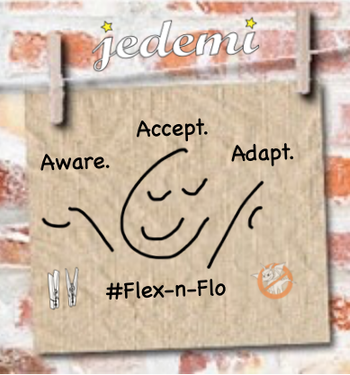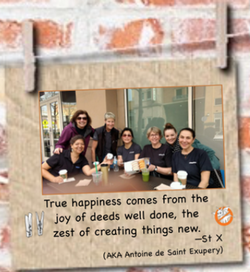 According to a study just released by Northwestern University, letter writing from centuries ago and email usage today apparently share similar behavioral characteristics. That part probably isn’t too surprising. The more interesting finding is that people apparently aren’t driven to write in response to others. Rather, what was discovered from studying 16 famous writers, performers, politicians and scientists, including Einstein, Darwin, Sigmund Freud, Karl Marx, and Ernest Hemingway, is that no matter what their profession, all the letter writers behaved the same way:
According to a study just released by Northwestern University, letter writing from centuries ago and email usage today apparently share similar behavioral characteristics. That part probably isn’t too surprising. The more interesting finding is that people apparently aren’t driven to write in response to others. Rather, what was discovered from studying 16 famous writers, performers, politicians and scientists, including Einstein, Darwin, Sigmund Freud, Karl Marx, and Ernest Hemingway, is that no matter what their profession, all the letter writers behaved the same way:
- They adhered to a circadian cycle
- They tended to write a number of letters at one sitting, which is more efficient;
- When they wrote had more to do with chance and circumstances than a rational approach of writing the most important letter first.”
Apparently the mathematical model used by the Northwestern team was the same used in a previous study to explain e-mail behavior — thus the attempt to connect the different types of communication activities.
Humm… This sounds very interesting and almost believable. But first you need to step back and look at purpose behind the various forms of communication.
Communicating with a Purpose:
These days, it seems that email serves two functions: Exchange of information and to increase knowledge on a number of subjects.
For example, most of my emails are split between deliverables and the huge numbers of newsletters that are pushed into my In-Box. Every so often, I will find a story that I want to share, but for the most part, I am exchanging information with someone that has to do with deliverables. In fact, the way most of us prioritize our To Do list is based on what’s due next.
When thinking about the types of things being conveyed in letters of old, the apples-to-apples might be what we do today with blogging and journal writing (or on a micro level with tweeting, and updating a Facebook page). These are activities that are often done by chance and circumstance– sort of spur of the moment.
- Email is purposeful.
- Social networking (Twitter, Facebook) is a fun way to connect without going too deep.
- Journal writing is probably where the truest, from the heart, communication takes place. It provides a means for getting the thoughts and ideas that are pinging around in your head — out… but into a safe environment. A journal won’t laugh at you or tell you your ideas will never work. Rather, journals are quite accepting. For sure, a great place to start as you build confidence and courage to actually share with someone your deep down dreams and thoughts.
Aside: Who would have thought a post about behavioral studies connecting letter writing and emails would turn into a discussion about journal writing? That’s not where I was headed, but alas, here I am.
Circling back around, apparently what astounded the researchers is how the findings refuted the rational model, which says that people are driven foremost by responding to others.
But does it?
Like I said, it comes down to the type of communication that takes place.
 I am currently in the process of reading Antoine de Saint Exupery’s “Wartime Writings.” A lot of what he is communicating is in response to what’s going on in the world and among his comrades on the military base. In that context, we are all writing “in response to” something that has happened.
I am currently in the process of reading Antoine de Saint Exupery’s “Wartime Writings.” A lot of what he is communicating is in response to what’s going on in the world and among his comrades on the military base. In that context, we are all writing “in response to” something that has happened.
Perhaps they confused response with reply. A reply is a reaction. Someone makes a point, we react and reply accordingly.
But what if we had no deliverables to sweat… no ginormous ToDo list to contend with, would we sit down and type up a bunch of updates to our friends?
These days, that’s what Twitter and Facebook are for.
Would we be spending time writing what we think about a particular subject? Maybe, but not in letter format. We’d blog, we’d do journal writing, and if we feel very strongly, we may resort to commenting on a post under an alias (rarely our own name).
So why do such a study? In the article, one of the leaders of the research, LuÃs Amaral, professor of chemical and biological engineering in the McCormick School of Engineering and Applied Science, said:
“We are interested in identifying and understanding patterns of human behavior, in learning how we make choices. There are patterns to how we spend our days, and these models of probability, of how people allocate their time to do certain tasks, can be applied to many different areas.”
Statements like this make me think there are some things you can’t research to death or uncover through scientific models.
The Take-Away: This study was a start of a discussion and something we may want to ponder from time to time. At least for me, I am always seeking ways to be a more effective and efficient communicator. I haven’t quite figured it out, so for now, my public ponderables appear here in News, Views & Clues. A lot of the other things I am thinking end up in my journal. And if there is one thing I HAVE figured out, it is that if I didn’t proactively make time to read, write and recreate (workout), I’d be a wreck… very reactive, very uptight and probably not a lot of fun to be around.
Most of our choices have to do with stability — covering the basics to make sure bills are paid, food is on the table, etc.
The “other” choice has to do with becoming fully actualized, which means we need to proactively make time to think out our thoughts — no filters or constraints. We need to make the time to allow ourselves to make the connections.
This is an ongoing topic for me… so for now, let’s leave off by circling back to the beginning, and applauding the researchers for even trying to get their arms around this human behavior meets written communication thing.
It is helpful to keep asking ourselves daily, why we do what we do. Moving (acting) with a purpose is a really good thing.
###

















Speak Your Mind